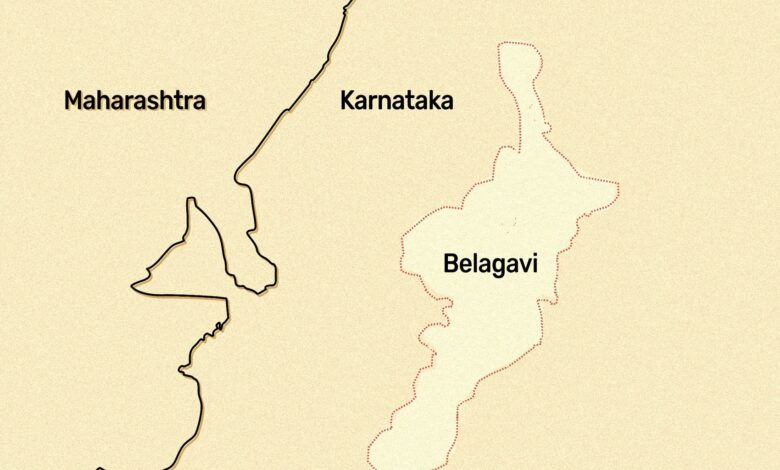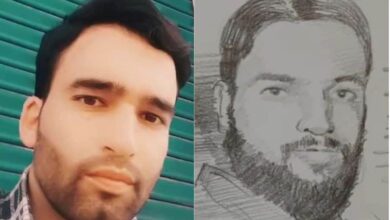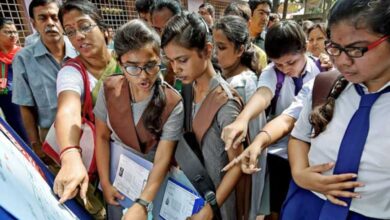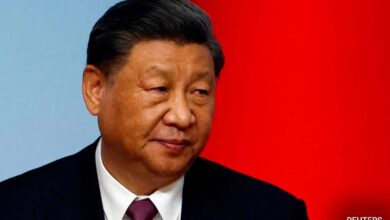Belagavi border dispute: The district that both Maharashtra and Karnataka claim

In the last week of November, Maharashtra Chief Minister Eknath Shinde held a meeting to take stock of the border dispute. Shinde deputed two senior ministers to scale up coordination on the issue on the legal front and politically.
A day later, Karnataka Chief Minister Basavaraj Bommai raked up the controversy by staking claim to some 40 villages that fall in Maharashtra.
While Shinde said that freedom fighters in Belagavi and other Marathi-speaking areas in Karnataka would be eligible for pension, Bommai declared grants for all Kannada schools in Maharashtra.
“No village in Maharashtra will go to Karnataka! The state government will fight strongly in the Supreme Court to get Marathi-speaking villages including Belgaum-Karwar-Nipani,” Maharashtra Deputy Chief Minister Devendra Fadnavis tweeted.
Bommai reacted, “Fadnavis has made a provocative statement on the Karnataka Maharashtra border issue and his dream will never come true. Our government is committed to protecting the country’s land, water and borders.”
Shinde asserted, “Not even an inch of space in Maharashtra will be allowed to go anywhere.”
Uddhav Thackeray, former Chief Minister of Maharashtra, hit out at Bommai and called the latter “possessed”. Maharashtra Leader of Opposition Ajit Pawar also condemned Bommai’s remarks. Pawar sought the Centre’s intervention on the issue.
On Tuesday, the dispute snowballed into violence as vehicles from both states were attacked and defaced in Belagavi and Pune, respectively. Considering the simmering row, Shah will reportedly hold meeting with both the states on December 14.
The raging dispute has its roots in the State Reorganisation Act, 1956, which aimed at reorganizing the states along linguistic lines. At the time of India’s independence, Belagavi was part of the Bombay state that had included parts of present-day Karnataka. After the implementation of the Act, Belagavi (previously Belgaum) became a part of Karnataka.
On May 1, 1960, Maharashtra claimed that 865 villages, including Belagavi, Carvar and Nipani, should be part of Maharashtra and not Karnataka. However, Karnataka said it will not part with any part of its territory.
The Mahajan Commission was set up by the Union government on October 25, 1966 to solve the dispute. It was headed by the then Supreme Court Chief Justice Meher Chand Mahajan.
The panel turned down Maharashtra’s claim over Belagavi, and also recommended that 247 villages/places, including Jatt, Akkalkote and Solapur, to be made part of Karnataka, and 264 villages /places, including Nippani, Khanapur and Nandagad, to be in Maharashtra. But Maharashtra opposed it tooth and nail. In 1970, the commission’s report was tabled in the Parliament but without any discussion.
The Maharashtra government filed a plea in the Supreme Court challenging the State Reorganisation Act, 1956 in 2004. It demanded 865 villages and places from five Karnataka districts to be merged with the state. The dispute also gave birth to Maharashtra Ekikaran Samiti (MES) in Belgaum, which was part of the erstwhile Bombay Presidency. Karnataka changed the name of Belgaum to Belagavi and built a second legislature in the district.
No political party took any serious initiative to resolve the row, although it continued to figure in the election manifesto of all of them.
Karnataka contends that only Parliament can decide the state borders, and not the Supreme Court. It cites Article 3 of the Indian Constitution while doing so. On the other hand, Maharashtra cites Article 131 and claims the apex court has jurisdiction in cases of disputes in which the Union government and the states are involved.
In 2010, the Centre said both Parliament and the Union Government had taken up all relevant factors while bringing the State Reorganisation Bill, 1956, and the Bombay Reorganisation Bill, 1960.
On December 10, Maharashtra Bharatiya Janata Party (BJP) president Chandrashekar Bawankule said the Supreme Court should hear the Maharashtra-Karnataka border dispute case urgently and give a decision soon as the situation is getting tense between the two states.
“I feel that no inflammatory speeches should be made by both sides. There is no meaning to what the Karnataka chief minister says or what we say. The issue will be permanently resolved if the result of the case in the apex court comes out,” the state BJP chief added.






